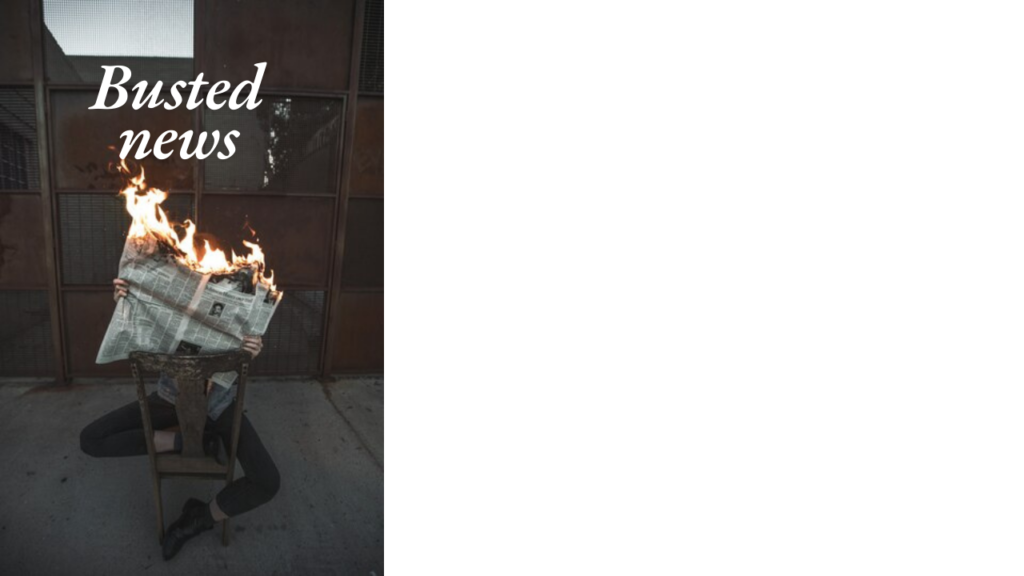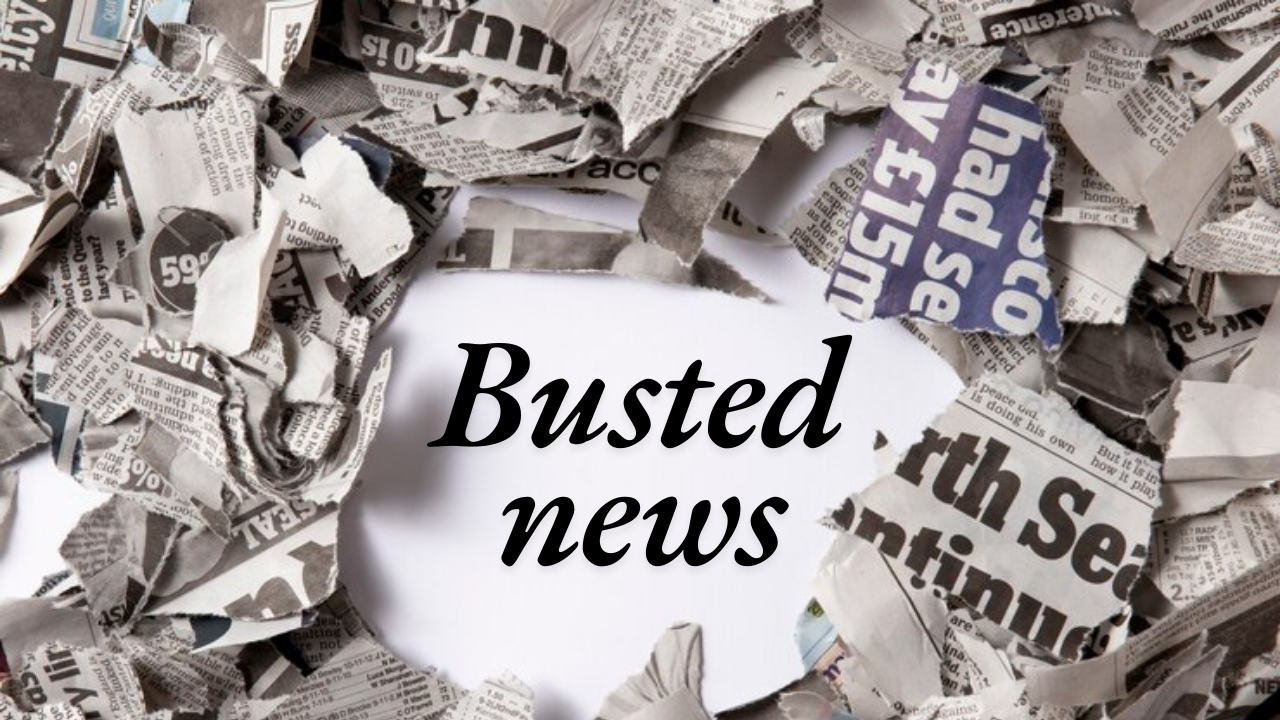Busted news refers to information that has been proven false or misleading after initial circulation. This phenomenon is often associated with sensational headlines, clickbait articles, and unverified claims that spread rapidly across social media platforms and news outlets busted news can encompass a wide array of topics, including politics, health, science, and entertainment, and can originate from various sources, both reputable and dubious.
The Rise of Misinformation
The proliferation of the internet and social media has transformed how news is disseminated. While these platforms offer unprecedented access to information, they also enable the rapid spread of false narratives. According to a study by MIT, false news stories are 70% more likely to be retweeted than true stories, highlighting the busted news with which misinformation can gain traction.
Factors Contributing to busted news
Social Media Algorithms:
Many social media platforms prioritize content that generates engagement, often promoting sensational or controversial posts over factual reporting busted news algorithmic bias can amplify misinformation.
Lack of Media Literacy: Many individuals lack the skills to critically evaluate news sources and discern credible information from dubious claims. This gap in media literacy makes it easier for misinformation to spread.
Confirmation Bias: People tend to seek out information that aligns with their pre-existing beliefs. This cognitive bias can lead individuals to share and believe false narratives that support their views, regardless of their accuracy.
Clickbait Culture: The pressure on news outlets to attract clicks and views can lead to sensationalist headlines that prioritize engagement over accuracy. This clickbait culture often distorts the truth and misleads readers.
The Impact of Busted News

The consequences of busted news are far-reaching and can significantly impact individuals and society as a whole.
- Erosion of Trust in Media
As misinformation spreads, public trust in media institutions diminishes. When people encounter false information repeatedly, they may become skeptical of all news sources, leading to a general distrust of journalism. This erosion of trust can undermine the role of the media as a watchdog and a source of reliable information. - Polarization of Society
Busted news often contributes to societal polarization. Misinformation can create divisions among communities, leading to heightened tensions and conflict. For example, during election cycles, false narratives can influence public opinion and exacerbate political divides, making it challenging for society to engage in constructive dialogue. - Public Health Risks
Misinformation about health-related topics, such as vaccines or treatments for diseases, can pose significant public health risks. The spread of false health information can lead to poor decision-making, resulting in harmful consequences for individuals and communities. For instance, during the COVID-19 pandemic, misinformation about the virus and vaccines hindered public health efforts and contributed to vaccine hesitancy. - Economic Consequences
Businesses can also suffer from the spread of busted news. False information about a company or product can lead to reputational damage, loss of consumer trust, and financial losses. In the age of social media, a single viral post can have significant repercussions for a brand.
Identifying Busted News
To combat the spread of misinformation, it is crucial to develop skills for identifying busted news. Here are some tips to help you discern credible information:
- Verify the Source
Always check the credibility of the source publishing the information. Reputable news organizations typically have editorial standards and fact-checking processes in place. Be cautious of busted news from unfamiliar websites or those that lack clear authorship. - Cross-Reference Information
Before accepting information as true, cross-reference it with other reputable sources. If multiple credible outlets report the same story, it is more likely to be accurate. Conversely, if you find only one source reporting a sensational claim, it may warrant further scrutiny. - Investigate the Author
Research the author of the article to determine their credentials and expertise in the subject matter. Authors with a history of reliable reporting are more likely to provide accurate information. - Analyze the Headline
Sensational headlines often indicate clickbait. If a headline seems exaggerated or emotionally charged, read the article carefully to assess its accuracy. - Check for Evidence
Credible articles typically provide evidence, such as data, expert quotes, or references to studies. If an article makes bold claims without supporting evidence, it may be a sign of misinformation.
Best Practices for Consuming News
In a landscape rife with misinformation, adopting best practices for consuming news can help individuals make informed decisions.
- Diversify Your Sources
Consume news from a variety of reputable sources to gain a well-rounded perspective on current events. This diversity can help you avoid echo chambers and expose you to different viewpoints. - Stay Informed About Media Literacy
Engage with resources that promote media literacy. Understanding how to critically evaluate news sources and identify misinformation is essential in today’s media landscape. Many organizations offer workshops and online courses focused on media literacy skills. - Engage in Constructive Dialogue
Encourage open discussions about news topics with family and friends. Engaging in constructive dialogue can help clarify misconceptions and promote a better understanding of complex issues. - Report Misinformation
If you encounter false information on social media, consider reporting it to the platform. Many social media sites have mechanisms for users to flag misleading content, helping to reduce its visibility.
Conclusion
Busted news represents a significant challenge in today’s information-driven society. As misinformation continues to spread, it is crucial for individuals to develop the skills necessary to identify credible information and consume news responsibly. By fostering media literacy, diversifying news sources, and engaging in meaningful discussions, we can combat the impact of busted news and restore trust in journalism.As consumers of information, we play a vital role in shaping the media landscape. By remaining vigilant and proactive, we can contribute to a more informed society that values accuracy, integrity, and open dialogue.
FAQs
Why is media literacy important?
Media literacy is essential for helping individuals critically evaluate news sources, identify misinformation, and make informed decisions in a complex media landscape.
What is busted news?
Busted news refers to information that has been proven false or misleading after being initially circulated.
How can I identify busted news?
To identify busted news, verify the source, cross-reference information with reputable outlets, investigate the author, analyze the headline, and check for supporting evidence.
What impact does busted news have on society?
Busted news can erode trust in media, polarize society, pose public health risks, and lead to economic consequences for businesses.














